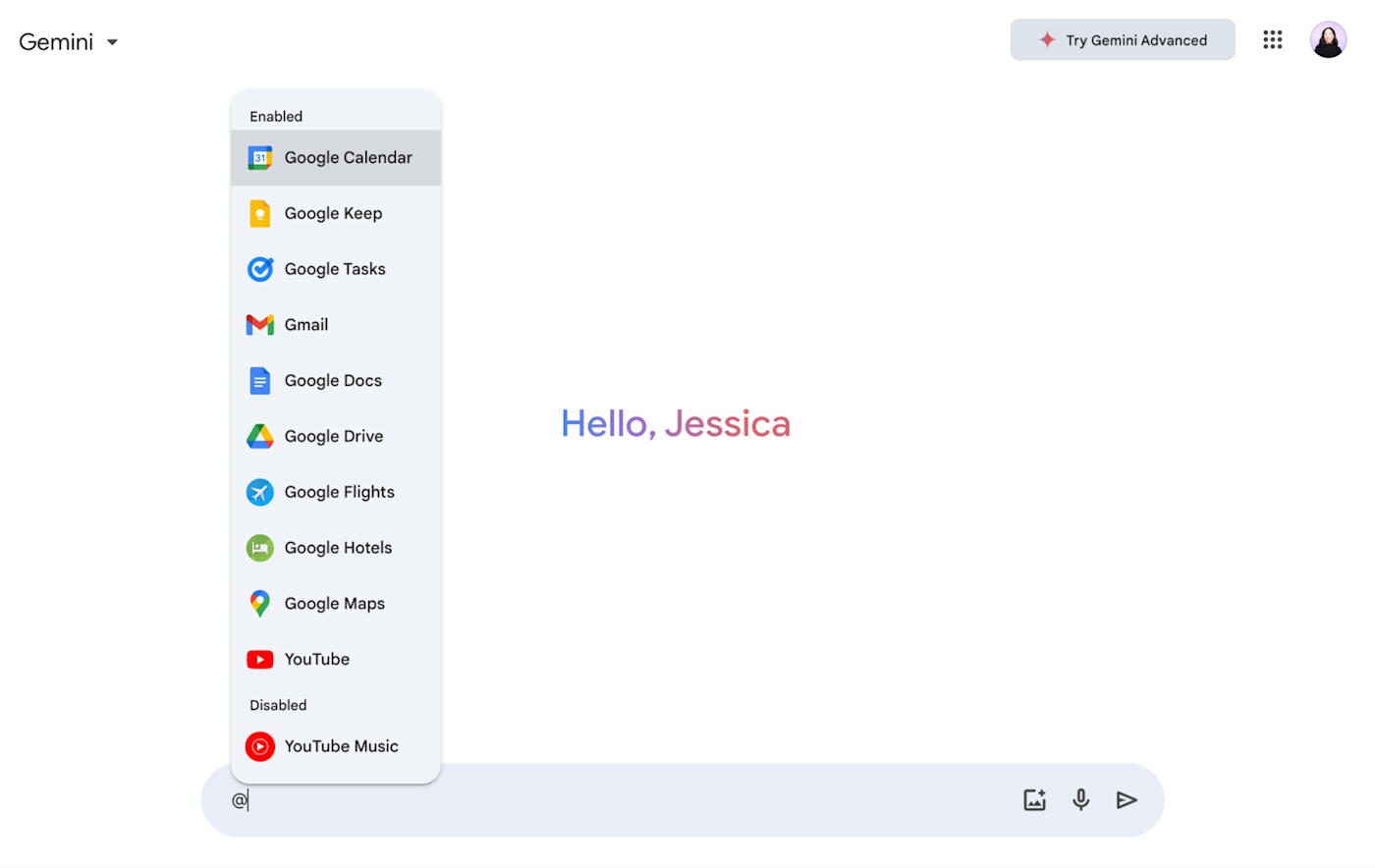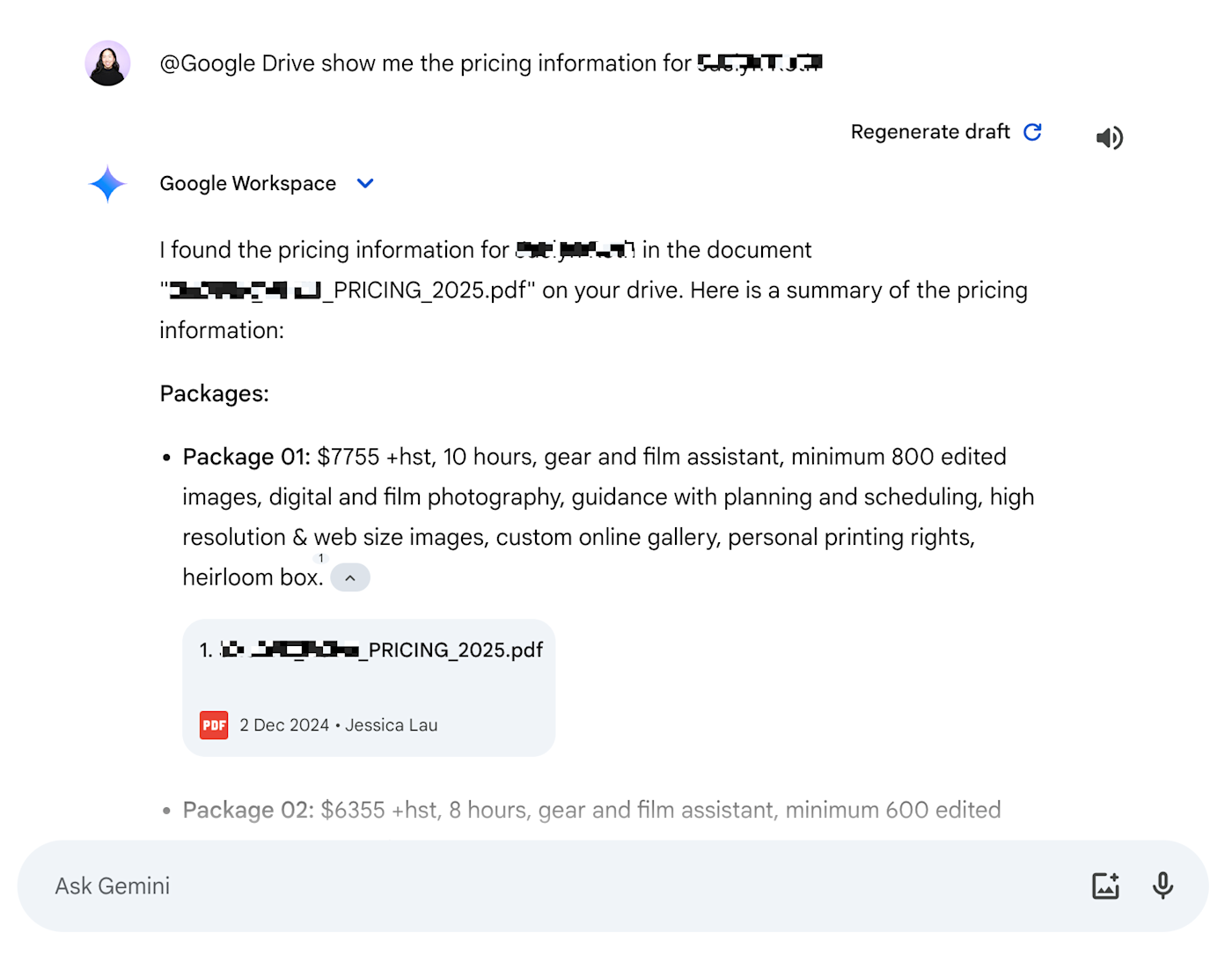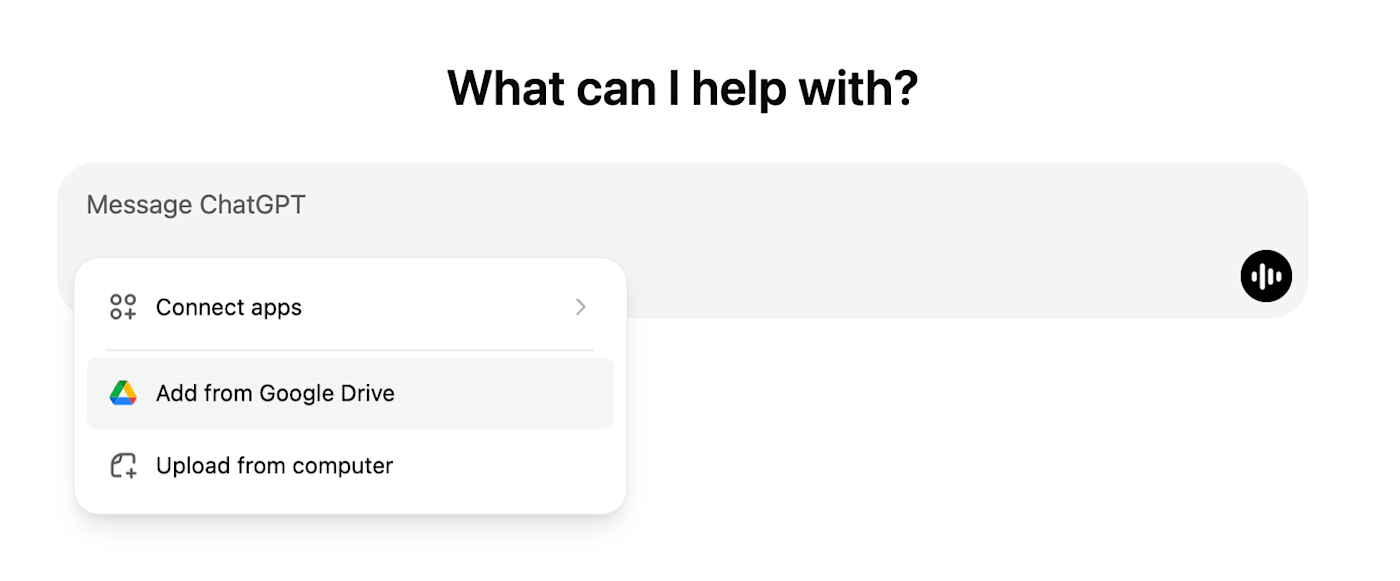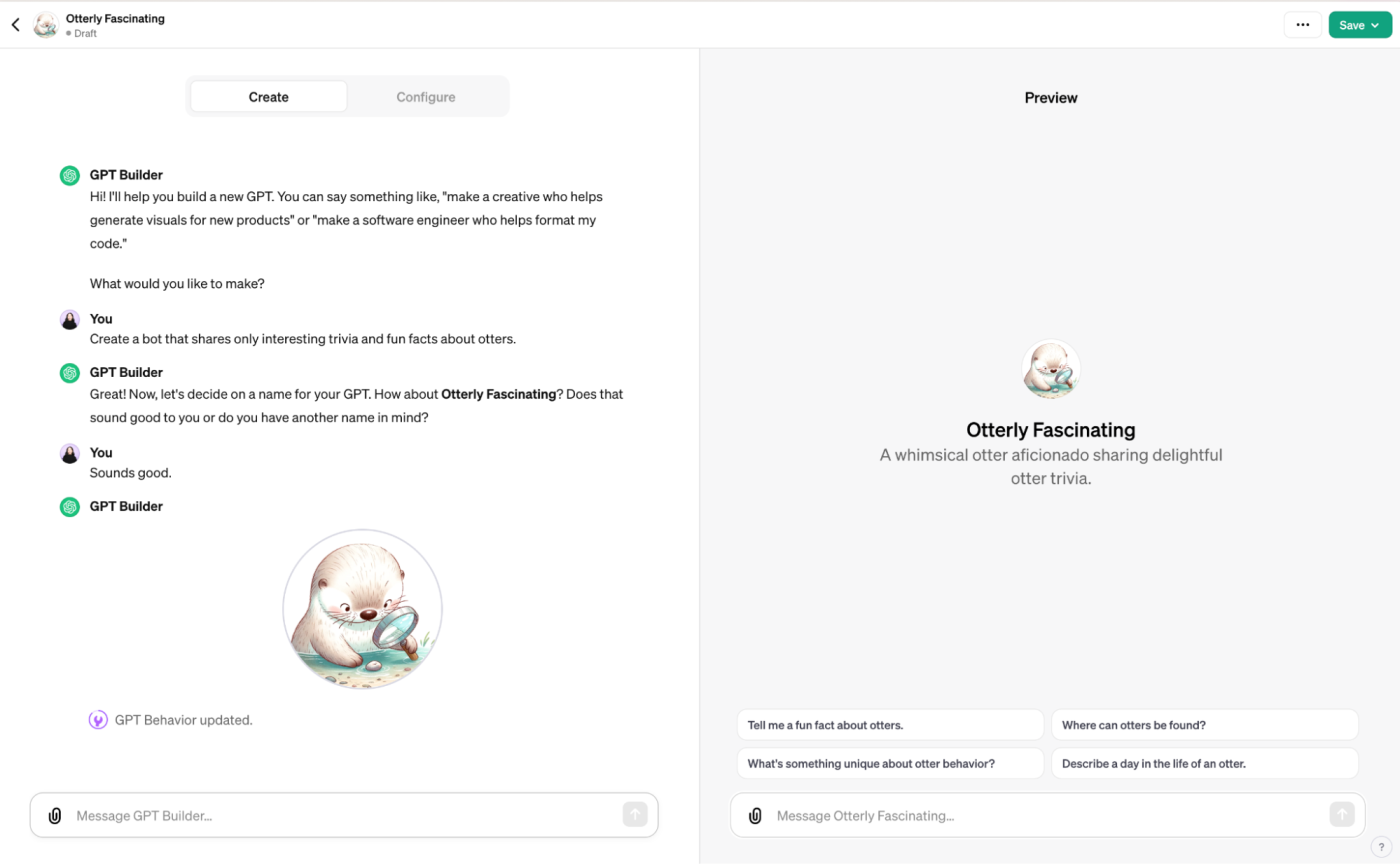When AI chatbots first came on the scene, and everyone was racing to release good-enough-first-version AI chatbots of their own, it was easy to draw comparisons between apps like
Gemini vs.ChatGPT. But as Google and OpenAI continued to add new features, models, and ways to access their chatbots, the differences became less obvious.Now, both apps offer much of the same functionality you'd expect from any top-of-the-line AI chatbot: answer questions, search the web, translate across languages, understand audio, and generate images. So what's different, and which should you use?
I've spent countless hours testing both Gemini and ChatGPT, and here, I'll show you how they stack up.
- Gemini vs. ChatGPT: What's not different?
- Both are powered by state-of-the-art AI models, but each has their own strengths
- Gemini is deeply rooted in the Google ecosystem, while ChatGPT offers broader integrations
- Both let you build custom chatbots, but ChatGPT offers more advanced features
Gemini vs. ChatGPT at a glance
The gap between what separates Gemini and ChatGPT is narrowing, but they still differ in a few important ways. Here's a quick breakdown of how they compare, but read on for more details.
|
ChatGPT |
Gemini |
|
|---|---|---|
|
Creators |
OpenAI |
|
|
Models |
GPT-4o mini (available for free); GPT-4, GPT-4o, 01-preview, and o1 mini (paid tiers only) |
Gemini 1.5 Flash (available for free); Gemini 1.5 Pro (Gemini Advanced only) |
|
Context window |
128,000 tokens |
Up to 1 million tokens |
|
Supported languages |
Over 50 |
Over 40 |
|
Platforms |
Web, mobile, and desktop |
Web and mobile |
|
Pricing |
Free; ChatGPT Plus is available for $20/month |
Free; Gemini Advanced is available for $19.99/month (first 2 months free) |
Gemini vs. ChatGPT: What's not different?
Before we get into the differences between Gemini vs. ChatGPT, here's a quick rundown of what's not different.
-
Ability to process text, image, and audio inputs. Since ChatGPT and Gemini are both powered by multimodal AI models, they can process and output different "modalities"—like text, image, and audio. The last modality is particularly interesting because it's what allows users to have real-time, back-and-forth conversations with the chatbots. You can have live chats with ChatGPT across all devices, whereas Gemini currently lets you do this only on the mobile app. But I'm sure that'll have changed by the time you're reading this.
-
Data analysis. ChatGPT and Gemini can analyze data and provide summaries, feedback, and insights about it. They can also turn your data into graphs and different visualizations.
-
Web searches. Both apps can search the web for real-time data to inform its responses.
ChatGPT search is powered by Microsoft Bing; Gemini is, of course, powered by Google Search. -
Supported devices. ChatGPT and Gemini are supported on web and mobile apps. But with Gemini, how you access the chatbot on different devices is less straightforward than with ChatGPT. ChatGPT also offers a desktop app, while Gemini doesn't (for now).
-
Data management. Both chatbots offer similar controls for managing your data. You can turn memories on or off, delete conversations after the fact, and have conversations that don't appear in your conversation history (these are called "temporary chats" in ChatGPT). Both apps will also keep your deleted or temporary conversations for set periods. The only difference between these two is that ChatGPT allows you to archive conversations—you can't with Gemini.
-
Conversation sharing. ChatGPT and Gemini allow you to share your conversations with others. The main difference here is that ChatGPT doesn't allow you to share conversations with AI-generated images.
Both are powered by state-of-the-art AI models, but each has their own strengths
ChatGPT and Gemini are powered by state-of-the-art,
multimodal AI models that can do almost anything. ChatGPT is powered by two families of models:GPT-4o ando1; Google Gemini, the chatbot, is powered by—wait for it—Google Gemini. Each model contributes to ChatGPT and Gemini's unique strengths.- Context windows. ChatGPT's context window is significantly smaller than Gemini's: 128,000 tokens versus one million, respectively. Even so, 128,000 tokens are more than you could probably ever need, so it's likely you won't actually notice the difference.
-
Logical reasoning. ChatGPT's o1 model uses
chain-of-thought reasoning to analyze complex problems—Google is still working on this—making ChatGPT the more powerful option for doing tasks like decoding a cipher text, solving a crossword, and correctly answering math and English questions. -
Image generation. Both apps let you
generate AI images. ChatGPT uses the more mature and proven DALL·E 3, while Gemini uses a newer text-to-image generator, Imagen 3. If generating images is important to you, ChatGPT limits the number of images you can create with a free account, whereas Gemini sets no such limits. -
Memory. Both apps have a memory bank, but they work differently.
ChatGPT's memory functionality is turned on by default for allChatGPT Plus accounts and automatically picks up on the details and preferences shared in your chat to tailor its responses. With Google Gemini, you need tomanually add memories in your settings, making it operate more like ChatGPT's custom instructions. -
File conversion. ChatGPT can convert files from one format to another—for example, you can turn an article into a presentation (and vice versa). Gemini doesn't offer this functionality (yet).
There are lots of little quirks like this that separate the apps, but you won't really know which ones matter to you until you start using them. This is also why some folks (like me) use both.
Gemini is deeply rooted in the Google ecosystem, while ChatGPT offers broader integrations
As you can imagine, Gemini is deeply integrated into the Google ecosystem. Without leaving your chat, you can ask Gemini to retrieve real-time information from other Google apps, including Gmail, Drive, Maps, Flights, Hotels, and YouTube. Just type
@[name of the app you want to look in] and then enter your prompt.

In practice, this means you can do things like:
-
Ask Gemini to pull details from an email thread in Gmail
-
Share a link to a file stored in Google Drive or output the contents of that file directly in your conversation
-
Export a Gemini response to Google Docs, Gmail, or Google Keep
-
Plan your travel—including flights, driving routes, and accommodations—for an upcoming trip
If you ask Gemini to reference Gmail or Drive, for example, it'll pull not only details from the referenced email or file, but also clickable links to them if you want to dig a little deeper.

ChatGPT does integrate with Google Drive, so it can read Docs, Sheets, and the like. But you'll have to first connect your Google account and tell it exactly which file to look at—and it still can't access your email.

Instead, ChatGPT lets you pull pre-made or
custom-made chatbots (called GPTs) into your ChatGPT conversation by entering@[GPT name] followed by your prompt in the message bar. It's a different kind of integration than Gemini's with Google, but it's easy to toggle between chatbots and get the right kind of AI-powered support for the occasion.
You can extend ChatGPT even further by using
Zapier's ChatGPT integration to send data across thousands of other apps and incorporate AI into your other workflows. Learn more abouthow to automate ChatGPT, or get started with one of these pre-made workflows.Zapier is the leader in workflow automation—integrating with thousands of apps from partners like Google, Salesforce, and Microsoft. Use interfaces, data tables, and logic to build secure, automated systems for your business-critical workflows across your organization's technology stack.
Learn more.Note: With Zapier's
Google Vertex AI andGoogle AI Studio integrations, you can also access the model behind Gemini from all the apps you use at work. It's a little less applicable to the everyday user, but it works.Both apps let you build custom chatbots, but ChatGPT offers more advanced features
If you're a Plus or Enterprise user, OpenAI allows you to build custom chatbots (GPTs)—and there are no limits to how many GPTs you can build. All you have to do is tell the GPT builder, in plain English, what you want to create, and the builder will take it from there.
Custom GPTs can browse the web, generate images
using DALLE·3, and run code. You can also upload knowledge files—for example, writing style guides or help docs—directly to your GPT builder to inform your GPT's responses.Here's an example of a GPT I created by simply prompting the GPT builder to create a chatbot that shares only fun facts about otters.

Google, for its part, offers
Gemini Gems—it's their version of custom Geminis. It's currently available to only Gemini Advanced, Business, and Enterprise users, so I haven't had a chance to test it myself, but the build process looks similar to ChatGPT's: tell Gem what you want to create, and Gemini will take care of the rest. You can also upload knowledge resources if you have any.Unlike GPTs, you can't use Gems to generate AI images or interact with Gems using Gemini Live (voice mode). If those features are important to you in a custom chatbot, stick with ChatGPT.
Gemini vs. ChatGPT: Which is better?
If you're still wondering what the differences are between Gemini and ChatGPT, the truth is—not much. But that answer probably doesn't do much for you if you're deciding which one to use. Here's my recommendation: If you live in Google, use Gemini. Otherwise, ChatGPT is still the best option for most people.
It's worth emphasizing that ChatGPT and Gemini share a notable con: both chatbots are prone to generating plausible-sounding but inaccurate responses. At the end of the day, the better AI tool depends on what you're using it for—and whether you can deal with those pesky
hallucinations.Related reading:
- How to train ChatGPT on your own data
- What is Llama 3 and why does it matter?
- Meta AI vs. ChatGPT: Which is better?
- How to use the Gemini API
- Perplexity vs. ChatGPT: Which is better?
- The best ChatGPT alternatives
This article was originally published in March 2023 by Elena Alston. The most recent update was in December 2024.